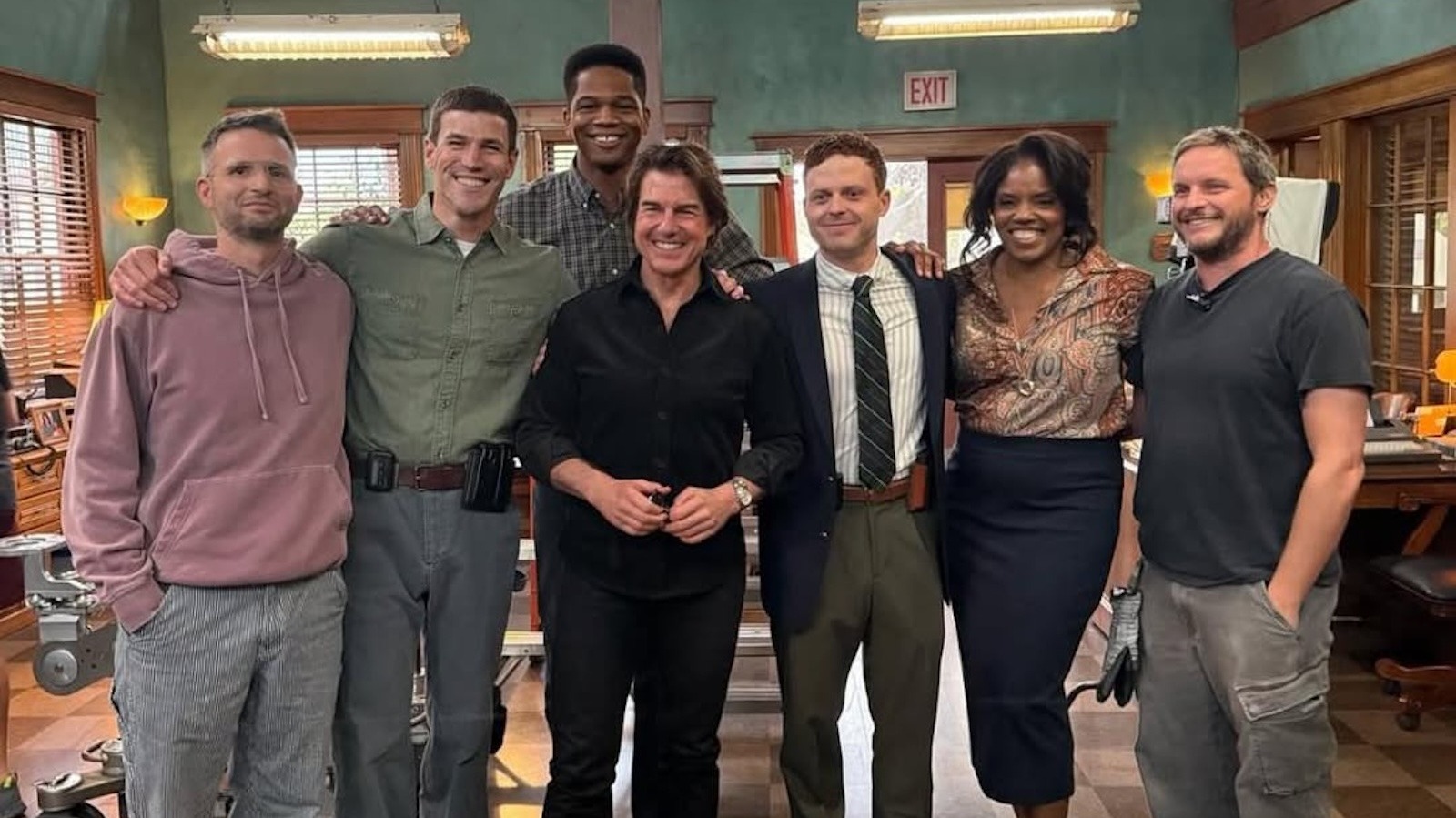SPOILER ALERT: This interview contains spoilers for the Season 3 finale of “The Gilded Age,” now streaming on HBO Max.
Bertha Russell should be on the top of the world.
As “The Gilded Age” ends its third season, Bertha (Carrie Coon) has pulled off yet another social triumph, putting together a glittering evening in Newport that also shattered the restrictions preventing divorced women from going to balls and other major events. Bertha’s old rival, Mrs. Astor (Donna Murphy), has finally been forced to loosen her stranglehold on the monied elite. And George (Morgan Spector) has survived being shot thanks to Dr. Kirkland. In fact, George looks remarkably robust for someone who took a bullet to the gut. Oh, and Bertha is about to be a grandmother to a little duke or duchess.
And yet, the Bertha we see right staring out the window right before the credits roll on the season finale is a shattered woman. Instead of bringing her closer to George, his near-death experience has made him more certain that their marriage, once so unshakable, may be irreparably broken. He cannot forgive Bertha for using their daughter Gladys (Taissa Farmiga) as a pawn she can marry off to the Duke of Buckingham (Ben Lamb) in order to one-up Mrs. Astor.

Courtesy of HBO
“[The shooting] has made me examine my life, and I don’t like everything I see,” George tells Bertha shortly before he takes off from their Newport mansion. Could divorce court be in their future?
For Coon, playing Bertha this season has been a chance to show another side of her character. For the first two seasons, Bertha was an unstoppable force, determined to conqueror New York and put the Russell family at the forefront of an exciting new era of wealth and power. This season, her ambitions and those of George diverged, leaving Bertha unmoored.
“It’s always interesting to get to explore the vulnerability of a character,” Coon says. “She’s usually so confident in her actions, but this season she really didn’t anticipate the consequences of what she’s done and she’s blindsided. It’s very rattling for her.”
“The Gilded Age” has seen its ratings surge amid all the Russell family drama, with HBO recently renewing it for a fourth season. Coon spoke to Variety about what might be in store for Bertha and George, as well as for the high society she now rules.
The final shot of this season is a closeup of you looking stricken. What do you remember about filming the last scene?
It was very heartbreaking. We were working on the language of it before we shot it. Morgan Spector and I wanted to feel that Bertha and George were fully expressed in that scene. And our hearts were breaking over it as we were doing it. What the audience doesn’t see is that the first AD was outside in a raincoat, pretending to gallop away so I could get the eye line right. Instead of George dramatically escaping in a carriage, I was looking at one of the crew members pretending he was on a horse. The magic of cinema is alive and well.
When you say you were working on the language, what do you mean? Were you changing the lines?
After three years on the show, Morgan and I feel very protective of our of our characters. We wanted to make a few adjustments in what they were saying. We were just advocating for our sides of the argument, just to make sure that the audience understood where we were both coming from in that fight.

Courtesy of HBO
There’s a moment at the ball where George and Bertha reunite and it seems like this near death experience has brought them back together. In fact, it actually has made the fractures in their relationship more pronounced. Why do you think that’s the case?
The experience of marrying off Gladys was deeply unsettling for George. He really feels that he has failed his daughter, and then he has a near death experience, which is forcing him to have some spiritual confrontation where he is questioning his life choices. And Bertha can’t be fully inside of that experience, and she doesn’t really understand how it has changed him. She thought it was going to bring them closer together. But she understands better than ever what her priorities are, and he’s questioning all of his. That feels very real to me in longterm relationships. One person can go through a very transformative experience that the other person doesn’t have access to, and it takes them a while to find their way back to each other.
Do you feel like they will be able to put aside their differences next season?
I don’t know. It depends what George wants.
Do you follow the online discourse around the show?
I do. I’ve always been someone, even from my earliest theater days, who read all the reviews. I just really wanted to develop a thick skin or punish myself or something. I’ve always loved participating in the conversation — even the mean stuff, I find pretty hilarious. I love that people are really mad at Bertha. I love that they think she’s a villain. I love defending her.

This season started off with Bertha and Gladys completely at odds over Bertha’s decision to marry her to the Duke. But it ends with them closer than ever. What do you make of that change?
Bertha was right. It was a good marriage. She just needed everybody to get on board. What I love, too, is that it shows the trajectory of a mother and daughter. Her daughter is now married, and Bertha has a lot to offer in terms of advice. She had a long and successful marriage, and her daughter would do well to take advantage of that experience.
That’s not the case with Bertha’s son, Larry (Harry Richardson), who seems to have joined his father in absolutely despising Bertha by the end of the season.
My bright, shining star, the apple of my eye, turned on me. It was very startling. She certainly has stood in his way in his relationships as well. She has meddled in his life, and expressed her disapproval of Marian Brook [Louisa Jacobson]. She initially expected her son to make a better marriage, but then had to do a mea culpa, and in order to save her own marriage, she decides to make an exception for Larry. And she does respect Marian. It’s just not the marriage she would have wanted for her son in terms of its power and influence and wealth, but she admires Marion’s pluck, her fashion sense, her ambitions — the idea that Marian is not happy to just go along with what is expected of her. Bertha relates to that, because Bertha plays the game, but she’s not afraid to question the game. Also she decides not to stand in the way of her son’s marriage, because her son’s gonna be fine. Everything he touches turns to gold. He’s a rich, white guy. The world is set up for his success. Her daughter, that’s a different story. She had to be much more protective and much more controlling of her daughter’s life.
Why has Bertha decided to embrace the cause of helping divorced women re-enter society?
It’s not entirely altruistic. She always has an eye toward the future. In the event something were to happen to her, on some level, I think she’s taking care of herself too.
Bertha has an interesting exchange with Mrs. Astor at the party where she says, “America is the future.” In that moment, it feels like a torch has been passed. Has Bertha supplanted Mrs. Astor at this point as the head of society?
Yes, and that happened in real life. Mrs. Astor ultimately had to let all these “new money” families into society, because their wealth was undeniable. They were going to build their own society if she didn’t.
How precarious is Bertha’s position? Is she going to be supplanted by someone younger and wealthier at some point too?
Over her dead body. She’s going to go down swinging.
This season came out as there’s been renewed attention on the billionaire class. We’ve seen their influence politically, with people like Elon Musk and Mark Zuckerberg cozying up to Trump. And we had the media circus that surrounded Jeff Bezos and Lauren Sánchez’s lavish wedding. Do you see parallels between the era that the show is depicting and what’s happening in America today?
I see devastating parallels. On one level, I worry that we are humanizing billionaires? But on another, I’m glad people are paying attention to the consequences of late-stage capitalism that were set into motion during the Gilded Era. It’s a useful conversation to be having, and I think that’s what good art does. You know, these people that we are playing were not necessarily good people. The reason they built museums and opera houses is to rehabilitate their reputations as terrible, horrible, punishing overlords of labor. They took advantage of everybody, and then they had to give some of their money back as charity to pretend like they weren’t that bad. Our billionaires today don’t even do that. There’s no shame anymore. They don’t even pretend to be good. They’re just openly, shamelessly acquiring whatever they want at the expense of everyone else.
This interview has been edited and condensed.
Source link


